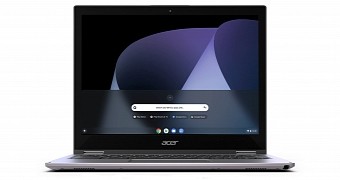Windows continues to be the operating system of choice for millions of users who want the full desktop power without any kind of compromise regarding the apps they need to run.
And while the competition from other platforms, including Linux itself, is growing, Windows remains the number one desktop platform, and the large app ecosystem plays a key role in this.
Google itself is pushing hard for Chrome OS, an operating system whose adoption is growing mostly in the education market where Chromebooks can be used by teachers and students for a wide variety of tasks. But just like other platforms, Chrome OS has also suffered from the lack of app support, something that once again made Windows the go-to platform for so many customers.
And now everything is supposed to change.
Google has recently announced that it’s bringing Windows apps, including the Microsoft Office productivity suite, to Chrome OS, all using a partnership with Parallels. In other words, Chrome OS users should be able to run Windows apps on Chrome OS just like they do on Microsoft’s operating system, so the drawback that I was talking about earlier would technically be eliminated.
Parallels software will be offered at OS level on Chrome OS, so the virtualization software would become available for everyone natively.
“The Chrome OS team is working on new ways to make sure every company can benefit from the velocity created by supporting a cloud workforce. For example, our new partnership with Parallels brings legacy application support—which includes Microsoft Office desktop apps—to Chromebooks. More to come on this over the coming months,” John Solomon, VP, Chrome OS, explains.
This announcement is anything but good news for Microsoft.
While at first glance the software giant could be one of the companies to benefit from the Windows app support on Chrome OS, especially because Microsoft Office would thus make its debut on Google’s platform, not the same thing is likely to happen in the long term.
In other words, with Chrome OS now available to run Windows apps, some users no longer have a reason to choose Microsoft’s operating system, so in the long term, the market share of Google’s operating system is likely to continue growing.
And Google itself admits that the adoption of Chrome OS is skyrocketing.
“The features and benefits of Chrome OS that we used to think were additive suddenly became mandatory and business-critical. Case in point, we have seen a 109% year over year growth in unit sales in the U.S. for Chromebooks, and ~155% year over year growth in commercial Chromebooks in Q1 2020, fueled in part by the cost benefits and simplicity of deploying Chromebooks,” Solomon notes.
According to third-party data, Windows continues to be the number one desktop operating system with a market share that’s over 85 percent. In other words, nearly 9 in 10 PCs out there are still powered by Windows, and with Windows 10 adoption also increasing, the latest OS version is the one to benefit.
But on the other hand, the adoption of Windows alternatives keeps improving too. For example, Linux has reached a new record this year, with more and more users giving a try to the likes of Ubuntu, Linux Mint, and other distributions. And with Chrome OS typically available on affordable devices, there’s a good chance Google would also become a more important player in this market.
For now, Microsoft remains the go-to company for 9 in 10 users on the desktop, but it’s pretty clear that it’s all a dynamic market with a continuously expanding portfolio of alternatives.

 14 DAY TRIAL //
14 DAY TRIAL //